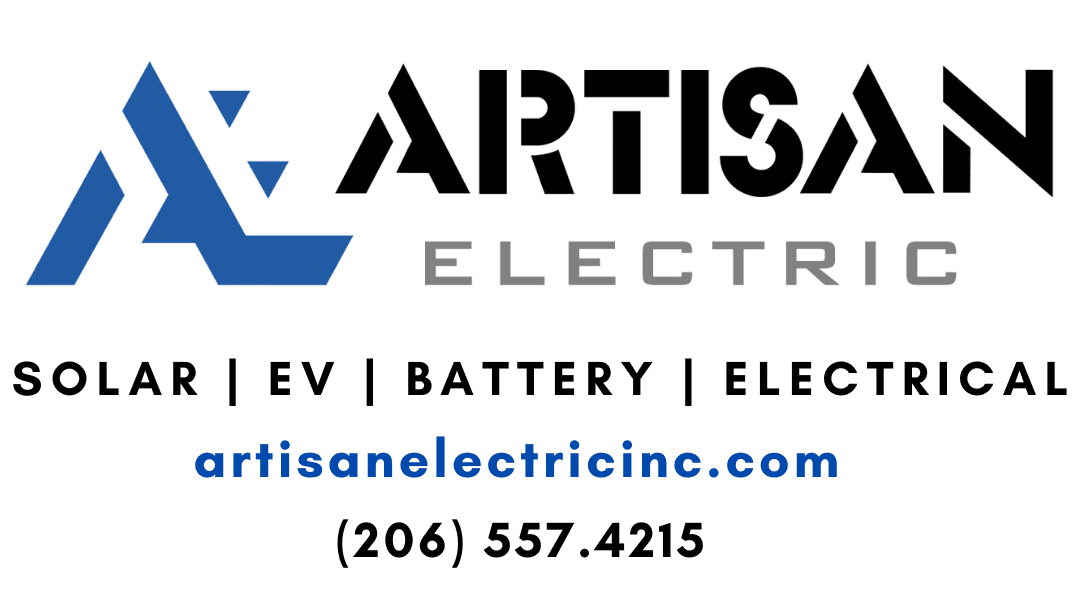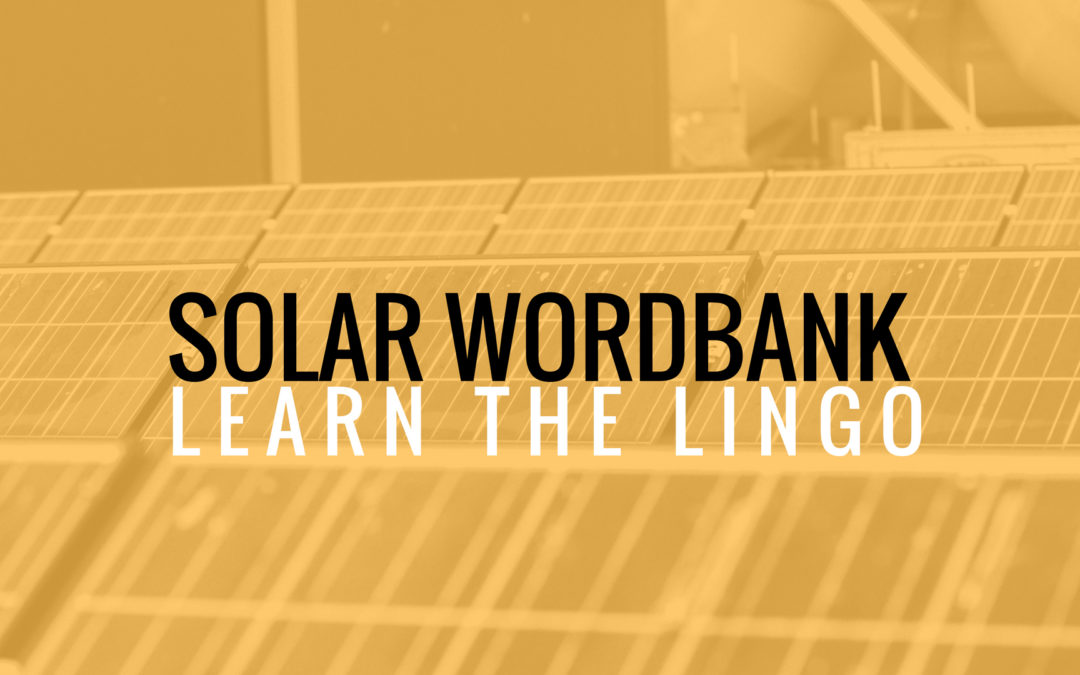When you’ve been working in the solar industry as long as we have, you know the language like you know…well…solar.
Sometimes we forget that not everyone is familiar with the terms we use on a daily basis. Our Solar Word Bank is here to fix that!
Check out our list of some of our most commonly used words and concepts. (And if you click on a word in blue, you can read a blog article all about it).
A
Alternating Current (AC): A type of electrical current, the direction of which is reversed at regular intervals or cycles. This is the type of current required to power homes and buildings.
Array: An interconnected system of photovoltaic (PV) modules that function as a single electricity-producing unit. An array is commonly referred to as a solar system.
Azimuth Angle: The angle between true south and the point on the horizon directly below the sun.
B
Battery System: Battery back-up solar PV systems work like regular generator systems, except they also have the added benefit of powering your house with clean, renewable energy in the daytime. Read more about the benefits of battery back-up systems.
C
Carbon Negative: Decreasing the amount of carbon in the atmosphere. Don’t be fooled by the name- this is generally GOOD.
Carbon Neutral: Neither adding to nor decreasing the amount of carbon in the atmosphere; OR decreasing only the amount of carbon emitted during production
Carbon Positive: Increasing the amount of carbon in the atmosphere. Don’t be fooled by the name- this is generally BAD.
Cell: Small semiconductor wafers that make up the surface of a solar module.
Conservation: Simple changes in behavior that lower energy usage. It costs nothing to conserve and can be done immediately.
D
Direct Current (DC): A type of electrical current where electricity flows in one direction. This is the type of current produced directly by the sun.
E
Efficiency: An investment that typically requires upgrading appliances or adding greener technology into your lifestyle.
Energy Payback: ratio of total energy produced during a solar system’s lifespan, divided by the energy required to manufacture it.
G
Grid (Electrical Grid): An integrated system of electricity distribution, usually covering a large area (Department of Energy). This is also referred to as your utility.
I
Inverter: A device that converts the DC (direct current) power produced by solar modules into a home’s required AC (alternating current) power. It is typically installed next to the main electrical panel.
K
Kilowatt (kW): A standard unit of electrical, instantaneous power equal to 1,000 watts. This is the unit used when describing residential and business-scale solar.
Kilowatt Hour (kWh): The measurement of power over time. 1 kilowatt is equal to 1,000 kilowatt hours. An average home uses 10 kilowatts, or 10,000 kilowatt hours per year.
M
Megawatt (MW): A unit of electrical power equal to 1,000 kilowatts. This is the unit that measures large-scale energy production like power plants.
Module: Commonly referred to as a solar panel.
N
Net Metering: A program that rewards solar owners for excess energy created when production is high and usage is low. The reward is a 1:1 credit that can then be used when production is low and usage is high.
Net-Zero: The status of a home when it produces as much solar power as it uses, or more.
O
Off-Grid: Living autonomously without reliance on the electrical grid or utility.
P
Photovoltaics (PV): The direct conversion of light into electricity. PV is commonly referred to as solar energy or solar power.
Production Meter: An additional meter installed on a home or business. This meter measures
R
Return-on-Investment (ROI): The amount of years it will take solar owners to recoup the entire cost of their solar systems. The average ROI in Washington State is 7-10 years.
Silicon: The semiconductor material used in most solar panels on the market. Silicon is present in sand, rock and granite, and is derived from silica, the second most abundant element on earth after oxygen.
This list is not complete! We are building it as we receive questions from friends and customers. If you have a word you’d like to see on this list, please email marketing@artisanelectricinc.com and let us know!

